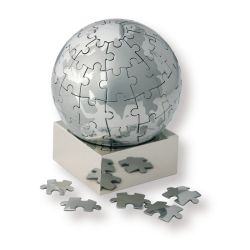Empirically, I would argue that there are four key areas which we need to concentrate on in order to develop the interprofessional field in the next five to ten years.
First, we need to employ more qualitative work to generate more data related to actually observing the interactive processes which occur during interprofessional activities – learning, facilitating and collaborating.
Second, we need to focus our empirical work to provide a better understanding of the translation of interprofessional activities into collaborative behaviour, enhanced practice and the delivery of care.
Third, we need to undertake economic analyses of IPE and IPP to begin to generate data into the actual costs and benefits of these activities.
Fourth, we need to move beyond single site studies, to engage with colleagues in other organizations and undertake multi-institution studies that will provide broader empirical inferences that can build a more comprehensive evidence base. Theoretically, I would argue we need to ensure that such perspectives become a core part of the work which is undertaken developing and studying IPE and IPP activities. Also, that such work begins to problematize (our everyday assumptions) in order to generate a more critical approach to understanding the field.
(Scott Reeves, Editor-in-Chief)
To read more see: Ideas for the development of the interprofessional field. Journal of Interprofessional Care; 24:217-219.

It is probable that the most frequently asked question about interprofessional education (IPE) is “Does IPE make any difference to health care?”. An implicit assumption nested in this question is that IPE can be “proved” to make a difference, which assumption is itself built on an assumption that there is agreement on what has to be proved about IPE. At face value, this is a “So what?” question. This complex question is open, however, to more profound analyses some of which have been discussed by Reeves (2010, a, b) and some of which I should like to present in this editorial. It is recognized that at this time there are few (if any) correct answers to the question.
Applying the logic of enquiry, the question can be iterated in at least two ways: a) as a null form (H0) i.e. “There is no difference in the healthcare provided by professionals who have been trained interprofessionally from those who have not”; or b) within a qualitative framework i.e. “How does healthcare provided by professionals trained interprofessionally differ from those who have not?”. Both iterations can be examined through various theoretical lenses; are open to various “experimental” methods of evaluation; and both iterations are about interactions between people.
As with all complex questions, however, terminology is of prime importance. Without an agreement on the lexicon used, it is difficult or perhaps impossible to draw comparisons and/or analogies between attempts to answer the question posed above. An argument for theory driven research in/on IPE is well taken, although the argument would seem to pre-suppose that within the community of investigators of IPE there is agreement on the meaning of the term.
As we know, interprofessional education (IPE) as well as interprofessional collaboration (IPC) have been identified as key ways forward in health education and health care delivery. Despite a growth in the amount of research in these areas, poor conceptualizations of these interprofessional activities have persisted. Given these conceptual challenges, myself and colleagues undertook a scoping review of the interprofessional field to map the literature available in order to identify key concepts and sources of evidence. The aim of this review was to develop an empirically tested understanding of IPE and IPC. We found a total of 104 studies met the criteria and were included for analysis. Studies were examined for their approach to conceptualization, implementation, and assessment of their interprofessional interventions. These studies were used to develop a framework which provides a conceptualization of IPE (and other interprofessional intervention activities). Specifically, the framework describes the nature of each type of interprofessional intervention (such as IPE) by stage, participants, type, objectives, and reported outcomes. This work offers an initial step to conceptually map out the interprofessional field and helps outline possible ways forward for future research and practice in this domain.
For further information see: Reeves et al (forthcoming) A scoping review to improve conceptual clarity of interprofessional interventions. Journal of Interprofessional Care